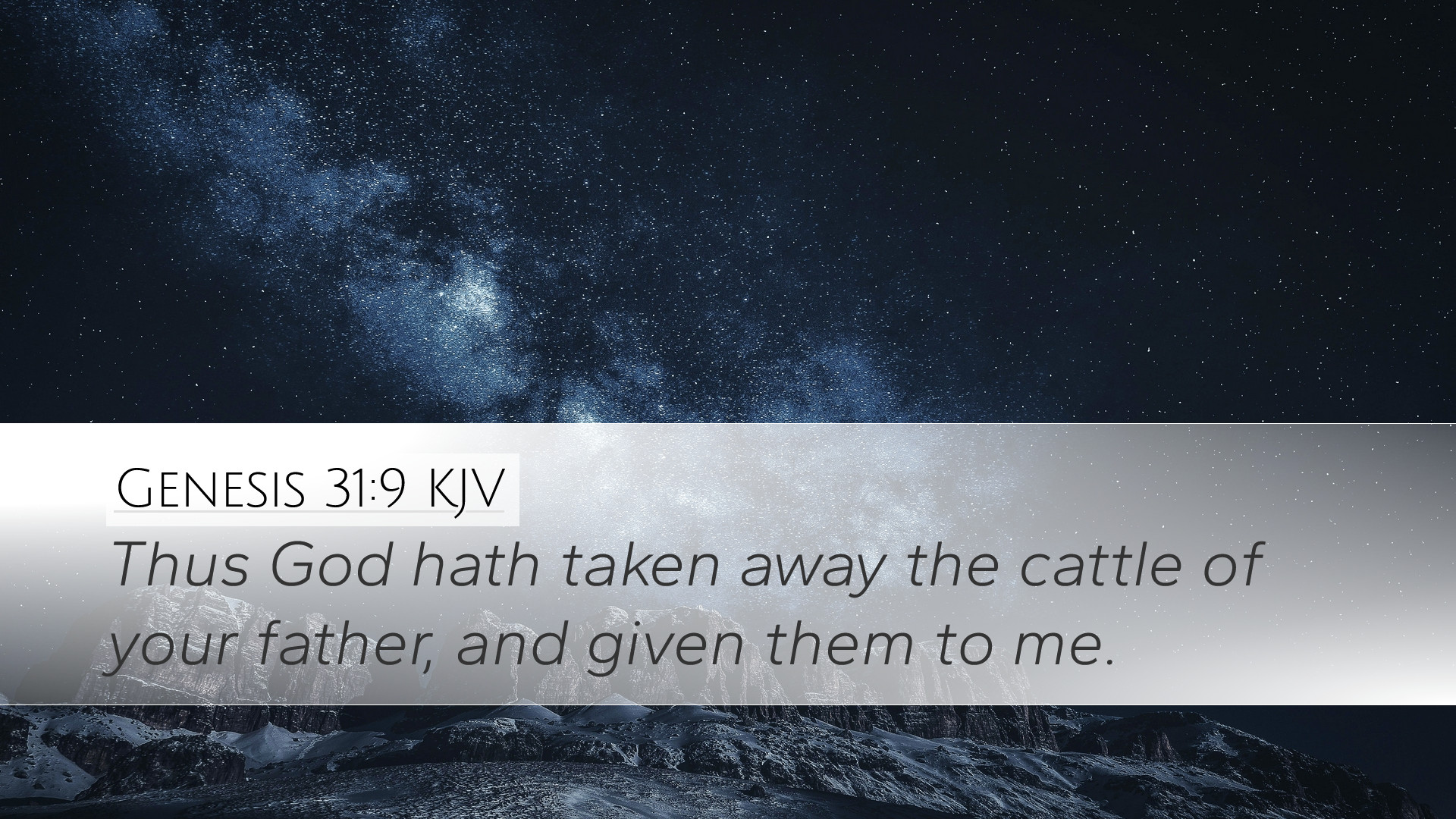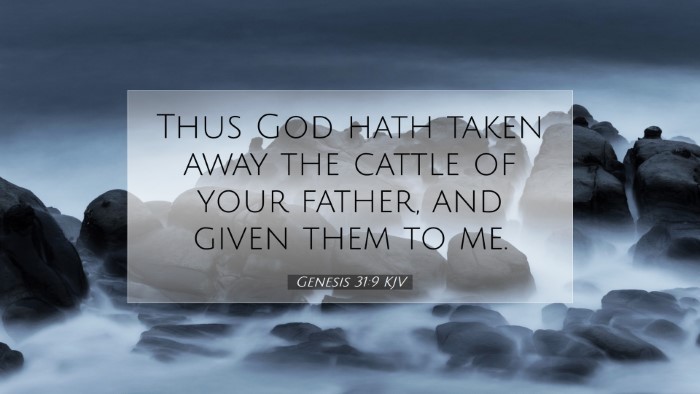Commentary on Genesis 31:9
Verse Context: Genesis 31:9 reads, "Thus God has taken away the livestock of your father and given them to me." This verse is part of the broader narrative where Jacob recounts how God has prospered him in the face of adversity and opposition from Laban, his father-in-law.
Overview of the Passage
This verse emphasizes God's sovereignty and providence in Jacob's life, highlighting the divine intervention that has led to Jacob's prosperity. It illustrates the themes of blessing, conflict, and divine favor prevalent throughout the patriarchal narratives in Genesis.
Theological Insights
- Sovereignty of God: Jacob’s acknowledgment of God's role in his prosperity serves as a reminder of God’s overarching control over human affairs. This principle underscores the assurance that believers can have in trusting God's plans, regardless of surrounding circumstances.
- Divine Favor: The transition of wealth from Laban to Jacob signifies not only material gain but also the fulfillment of God's promises to Abraham and his descendants. Jacob's success is portrayed as a direct result of God's favor, which he recognizes and attributes accordingly.
- Conflict and Resolution: Jacob's relationship with Laban exemplifies familial conflict. While Laban seeks to undermine Jacob's position, God's intervention brings about resolution and vindication for Jacob. This can be seen as a metaphor for spiritual struggles in the lives of believers.
Commentary Excerpts
Matthew Henry:
Henry posits that this passage showcases the divine wisdom in allowing Laban’s schemes to unfold, subsequently turning them to Jacob's favor. He notes the importance of Jacob’s acknowledgment of God's providence, which serves as a model for believers to recognize God's hand in their own lives.
Albert Barnes:
Barnes elaborates on the significance of the shift of property from Laban to Jacob. He emphasizes that this was not merely a transfer of livestock but rather an indication of God's active engagement in Jacob’s life. The transformative power of God is highlighted, wherein what was intended for harm is redirected towards blessing.
Adam Clarke:
Clarke offers a detailed analysis of the economic implications of this event. He states that God’s intervention in the livestock's transfer not only assures Jacob's livelihood but also reflects God’s covenant promises to his forefathers. Clarke encourages readers to see God's consistent faithfulness through generations, reinforcing the narrative that God's people are always under His watchful care.
Application for Contemporary Believers
- Trust in Divine Providence: Just as Jacob recognized God's role in his circumstances, believers are encouraged to see their life's events through the lens of divine sovereignty, trusting that God is actively working for their good, even in trials.
- Gratitude for Blessings: This passage serves as a reminder to acknowledge and give thanks for God's blessings in our lives. Recognizing God's provision fosters a spirit of gratitude.
- Awareness of Spiritual Warfare: The tension between Jacob and Laban can be viewed as indicative of larger spiritual battles faced by believers. Understanding that God's favor can lead to conflict can prepare the faithful to stay steadfast in trials.
Conclusion
Genesis 31:9 encapsulates a critical moment in Jacob's journey, revealing God's providence as pivotal not just for Jacob, but for the unfolding story of Israel. The lessons found within this verse resonate throughout Biblical history, inviting reflection on the ongoing relationship between divine sovereignty and human experience.


